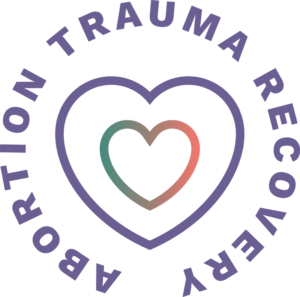Relief, Regret, Re-enactment
‘If anyone should not have been hurt by abortion, it was me. There was no doubt, I wanted the abortion… …but it’s like a cancer, until you deal with it, it affects every aspect of your life.’
Sue, WHBA National Co-ordinator
Emotional intelligence is essential to understand Abortion Trauma.
For many, abortion is a death experience that represents a significant loss in which personal choice does not negate, but rather adds to, the grief/trauma.
Traumatized women and men have an innate belief that the abortion experience has resulted in the loss of their unborn, irrespective of gestation, family/social/health opinions, lawmakers, and/or value systems.
Conflicted and unable to express the enormity of their grief, the traumatized struggle with feelings of isolation that typically leaves them questioning their own mental health.
Nobody understands.
Nobody would accept me if they knew.
Nobody else feels this way.
what’s wrong with me??
Understood to be a type of post-traumatic stress disorder (PTSD), abortion trauma presentations may sometimes have a delayed onset (5-10 years) that is often precipitated by a triggering event. Symptoms and severity will vary depending on the individual.
The main characteristic of abortion trauma is The Wall of Denial, a protective mechanism that aids a person to get through a crisis. Abortion can create strong and painful emotions that people often want to avoid or mask. The cardinal features are denial and suppression, most women and men do not consciously connect the problems they are experiencing to their abortion(s). After the abortion something is ‘just not quite right’.
The mental, physical, and emotional strain of abortion trauma can be overwhelming. Those affected often struggle to advocate for themselves, articulate their feelings or get acknowledgment for their grief/trauma. They need an understanding, supportive, and caring environment to be able to deal with the conflicts and losses they are struggling with. Medical, health and welfare professionals are critical in the exploration, understanding, early intervention and prevention of abortion-related mental illness, especially for women most at risk, and paramount to the provision of high-quality services for those suffering abortion trauma.
UNDERSTANDING THE ABORTION DECISION
It is a fallacy to assume that abortion decisions are made for unwanted pregnancies. They are often very much wanted, just unexpected.
Decisions of desperation.
Pregnancy is life changing. Nothing prepares you for the feelings – emotional and physical. Nothing prepares you for parenthood.
Why would a woman have an abortion if she believes it’s an unborn baby?
Impaired decision-making occurs in a crisis. Pre-existing emotional or psychological problems compound this impairment.
Abortion decisions are often crisis decisions.
‘I remember the doctor said, “The clock is ticking young lady. Time is a luxury you can’t afford”. I get anxiety when I hear the second hand on a clock.’
Destiny, 25
They are decisions compounded by shock, confusion, fear, and ignorance. The reality of pregnancy hits, and there is nothing more frightening. You are looking ahead, and life is never going to be the same. Many women feel pressured to make a quick decision. They lose their self-confidence, feeling foolish and the full responsibility for having got into this situation in the first place. If they just get it over with, they won’t be in it anymore. The internal and external pressures plaguing their consciousness is relentless. Women are highly vulnerable during this time, particularly when they are dependent on others.
Abortion decisions are often painful decisions. The very Nature of women makes them vulnerable to being pressured into having abortions for the conveniences of others.
ABORTION TRAUMA LOSSES
‘People think abortion pain is just a case of a bad conscience, but it is more than that. It is a gut wrenching grief that deeply wounds a mother’s heart and her identity of self.’
Julie Cook
These are profound and insidious wounds that require a level of denial that the traumatised person must sustain, in many cases… For a Lifetime.

Abortion trauma losses remain as open wounds until those suffering are empowered, enabled, and supported to acknowledge their loss and to then move forward onto healing.
The loss of the unborn is the wound of the unresolved death experience that the traumatised person feels and has, a deep connection to.
Abortion trauma is generally unacknowledged and/or unrecognised by society for a myriad of unreasonable motives. The ensuing silent suffering of those traumatised therefore forms a type of pathological or complicated grief that incapsulates their loss of motherhood and fatherhood.
Loss of self, or fractured identity of the traumatised person, is the unresolved juxtaposition of ‘who I am’ versus ‘who I could have been’.
‘…I will never be the same person as before I had the abortion – it’s like I’ve crossed an invisible barrier and I can’t go back.’
Fractured identity, because of abortion trauma, may result in many losses including, but not limited to, relationships with family and friends, careers, health, opportunities, and the joy of living.
The spiritual loss of abortion trauma is often dependent on the value system of the person suffering. The world is made up of a diverse array of spiritual structures, both formal and informal. Disruptions in these spiritual structures can be traumatic to one’s well-being, as they intimately connect the conscious self to the meaning of life and their path to healing.
Many believe they can never be whole or have joy in their life again, that the pain will never go away.
WOMEN MOST AT RISK OF ABORTION TRAUMA
The emotional strain of abortion can be overwhelming for the very young and those already struggling to cope with other issues. Remarkable consensus exists in medical literature about the women who are most at risk of psychological harm resulting from their abortion experience:
- Adolescence and teenagers
- Sexual assault/abuse & neglect victims
- Those who feel pressured to abort
- Those who have difficulty making the decision
- The isolated or dispossessed (lacking a support network)
- Women who are already mothers
- Those who abort for health reasons: either the mother’s or the unborn
- Those with developmental or psychological limitations
- Second and third trimester abortions

